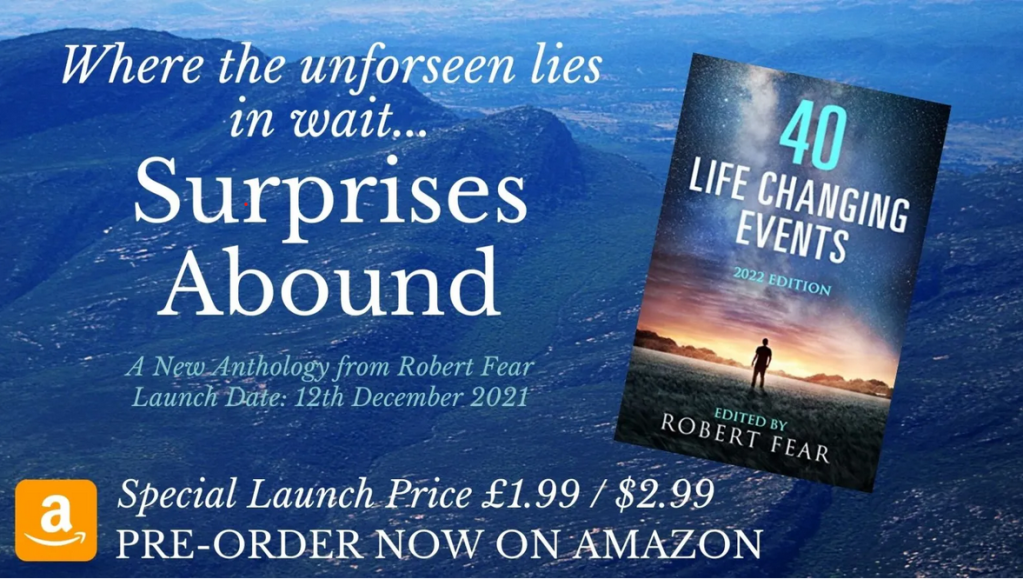I’m happy to welcome author Lynda Wolters. Today, Lynda shares her new release, Voices of Cancer.

Blurb
“I don’t know what to say” and “I don’t know what to do” are common responses to a life-threatening diagnosis. Voices of Cancer is here to help.
Every cancer story is different, but there is one commonality: both patients and the people supporting them often struggle to properly articulate their wants and needs through particularly challenging and in many cases, uncharted territory. Lynda Wolters knows firsthand: she was diagnosed with stage 4 terminal mantle cell lymphoma in August of 2016.
Voices of Cancer offers a candid look into the world of a cancer patient, informed by Lynda’s own story and conversations had with dozens of patients weighing in on their needs, wants, and dislikes as they navigate the complex world of diagnosis, treatment, and beyond. With comprehensive and accessible insight from people who’ve been there, Voices of Cancer helps educate, dispel fears, and start positive conversations about what a cancer diagnosis truly means, while shining a light on how best to support a loved one on their own terms.

Excerpt
Cure Is a Four-Letter Word
Once you’ve had a cancer diagnosis, being “cured” may be an unreachable goal. And the fear never goes away.
“Remission is a lesson in guarded optimism rather than magical thinking,” is a line I read from a blog post by Steve Jacob, a consultant for Baylor, Scott & White Health, who was describing remission, and I appreciated it immediately.
The word “cure” is often misconstrued as “remission” and, conversely, remission is often thought to mean cure. Unfortunately, those words are mutually exclusive and can be painful when misunderstood or misused.
Remission is essentially classified as either partial or complete. At its truest level, it means there is no evidence of active cancer at the moment.
A cure, on the other hand, is defined as cancer never coming back again. That is a pretty lofty statement, since there is always a chance of relapse. Once diagnosed with cancer, being “cured” can really only be used if the person reaches their death without ever experiencing the cancer again. Therefore, “cure” is just too big a word for most of us to feel comfortable with.
As a patient who has been told there is no cure for her disease, the word remission feels like the heavens opened up and the angels sang; it really doesn’t get much better. Cure, however, feels like a pipe dream, out of reach and inconceivable. Regardless of how long a person has been in remission, we still hold our breath during checkups and hear the whisper in our head: “Is it back?”
Before becoming fluent in the language of cancer, I thought cure and remission were interchangeable. Now I realize that remission is the only dream we have and cure lives somewhere in fantasy land.
Many patients will go in and out of remission, some more than once during their journey, and each time they have to deal with the, “But weren’t you cured?” question from family and friends. Perhaps some of this responsibility for confusion lies with the patient, and we should use language that is less confusing and more accurate, such as No Evidence of Disease (NED); No Evidence of Active Disease (NEAD); and “dormant.” A non-patient cannot be expected to understand what a sting the word “cure” can have.
Amazon Buy Links
Author Bio and Links
 Lynda was born and raised in a tiny farming community of 400 in northern Idaho. She worked on the family farm, with her first job being picking rocks out of the fields and ultimately graduating up the ladder to driving a grain truck and combine during harvest. Following high school, Lynda continued her education in Las Vegas before she moved back home to Idaho to raise her three sons.
Lynda was born and raised in a tiny farming community of 400 in northern Idaho. She worked on the family farm, with her first job being picking rocks out of the fields and ultimately graduating up the ladder to driving a grain truck and combine during harvest. Following high school, Lynda continued her education in Las Vegas before she moved back home to Idaho to raise her three sons.
Lynda still resides in Idaho with her husband and their peekapoo, Max.
Lynda has worked in the legal field for 30+ years and enjoys ballroom and swing dancing, horseback riding, kayaking, and river rafting. She has a heart for people and enjoys regularly volunteering. She spends the bulk of her spare time reading and writing.
Lynda was diagnosed with terminal stage 4 Mantle Cell Lymphoma (MCL) in August 2016. She touts herself as being a thriving warrior of the disease.
Lynda has completed two books of nonfiction: Voices of Cancer, released in October 2019, and Voices of LGBTQ+, released in August 2020.
The Placeholder, Lynda’s debut novel, was released in November 2022.
Lynda has published the following articles: Navigating the Workplace with Chemo Brain, February 23, 2020, Elephants and Tea. and When Masks Weren’t Popular, March 24, 2020, Patient Power. She has spoken on several podcasts, been a guest on a local talk show regarding Voices of Cancer, and given interviews for other outlets and print.
Jane Brody wrote up Voices of Cancer in the New York Times, her article entitled What to Say to Someone with Cancer, on January 13, 2020, with a follow-up on January 20, 2020, entitled, When Life Throws You a Curveball, Embrace the New Normal.
The Chinese translation rights of Voices of Cancer have been purchased by a grant to offer the book to medical students in Tawain.
Lynda donates Voices of Cancer books and a portion of its proceeds to Epic Experience, a nonprofit camp for adult survivors and thrivers of cancer located in Colorado.
Website | Facebook | Facebook Page | Instagram | Twitter
Giveaway
Lynda Wolters will be awarding a $25 Amazon/Barnes & Noble gift card to a randomly drawn winner via Rafflecopter during the tour. Find out more here.
Follow Lynda on the rest of her Goddess Fish tour here.

Lynda Wolters has crafted an emotional and powerful memoir filled with advice and anecdotes based on her cancer journey and conversations with dozens of patients. Having experienced my own bout with cancer, I found myself nodding, sighing, and sometimes tearing up as I turned the pages. I would love to have read this book while waiting for biopsy results, dealing with the side effects of chemo and radiation, and struggling to adapt to life after cancer. This memoir is an excellent companion for anyone diagnosed with cancer and an essential resource for caregivers, families, and friends.
What resonated…
“Cancer can change your body, and it can surely take your body away, but it can’t have your spirit.”
“Faith is in your control and fate is a matter of circumstance.”
“When you stop trying to get past your current state and accept where you are now, there is a sense of contentment, of understanding.”
“I have had to learn that I must stop gauging my abilities by the standards of previous (pre-cancer) me and must instead embrace the present me and my current capacity.”
“We choose our role models, but really we had to be our own best role model.”








 For too many years, I subscribed to the busy bee myth: Complete all given tasks and start on tomorrow’s To-Do List. That was my modus operandi for the first fifty years of my life. Or, more precisely, the first forty-nine years, seven months, and seven days.
For too many years, I subscribed to the busy bee myth: Complete all given tasks and start on tomorrow’s To-Do List. That was my modus operandi for the first fifty years of my life. Or, more precisely, the first forty-nine years, seven months, and seven days.

 “Light and mellow…nutty with a caramel finish.”
“Light and mellow…nutty with a caramel finish.” It’s easy to become overwhelmed and/or blocked as we ruminate about past events or worry about the future. To improve the quality of our lives, we need to find and implement appropriate anxiety antidotes.
It’s easy to become overwhelmed and/or blocked as we ruminate about past events or worry about the future. To improve the quality of our lives, we need to find and implement appropriate anxiety antidotes.